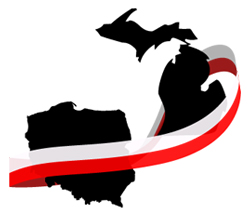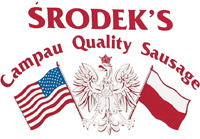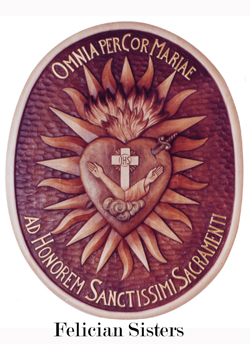|
OUR POLISH STORY…
FAMILY, FAITH AND FORTITUDE
 Like most ethnic groups, immigrating Poles were attracted to Detroit by the prospect of work—first in the building of railroads and the paving of streets, and next, in the city's rapidly expanding manufacturing industries. Many Poles followed relatives and friends who had been taking advantage of Detroit’s prosperous economy, while others arrived as manufacturing jobs in the East began to disappear. Like most ethnic groups, immigrating Poles were attracted to Detroit by the prospect of work—first in the building of railroads and the paving of streets, and next, in the city's rapidly expanding manufacturing industries. Many Poles followed relatives and friends who had been taking advantage of Detroit’s prosperous economy, while others arrived as manufacturing jobs in the East began to disappear.
Many Poles emigrated to Detroit because of the bedrock of Catholic schools and churches which had been established here. By 1914, Poles made up near 24% of the population of Detroit, mostly concentrated on the city’s east side.
As Detroit grew as an industrial center, most of the Poles who arrived were rural, unskilled in trade, and began their lives in the New World working at the lowest level of employment. Thus the Pole became the true backbone of Detroit industry. Polish women gravitated toward domestic service and in farm work, later to the cigar factories, the match factories, to hotels and restaurants, and to tailoring establishments.
While loyal and devoted to the land of their adoption, the Poles of Detroit, as elsewhere, clung tenaciously to the long and revered Catholic cultural heritage which they had brought with them. Their Polish American organizations, press, churches, and other institutions, served as the bulwarks of the old culture, as well as aids to their adjustment by easy steps to the American way of life.
FACT AND FACES
-
The nucleus of Detroit's first Polish settlement was formed by a number of Poles who arrived in the city during the middle of the 1850s. As former residents of the Pomeranian and Poona sections of the partitioned Poland, then under Prussian rule, the newly arrived Poles settled in and around the city's German-speaking community.
-
1998’s film Polish Wedding, centering on a big Polish family in Hamtramck and filmed here, was widely criticized by Detroit’s Polish community for being unrealistic, poorly researched, and filled with cultural stereotypes.
-
‘Polonia’ is the Latin name for Poland. In modern Polish, however, the word ‘Polonia’ usually refers to the Polish diaspora – people of Polish origin who live outside Polish borders. There are roughly 15–20 million people of Polish ancestry living outside Poland.
|







